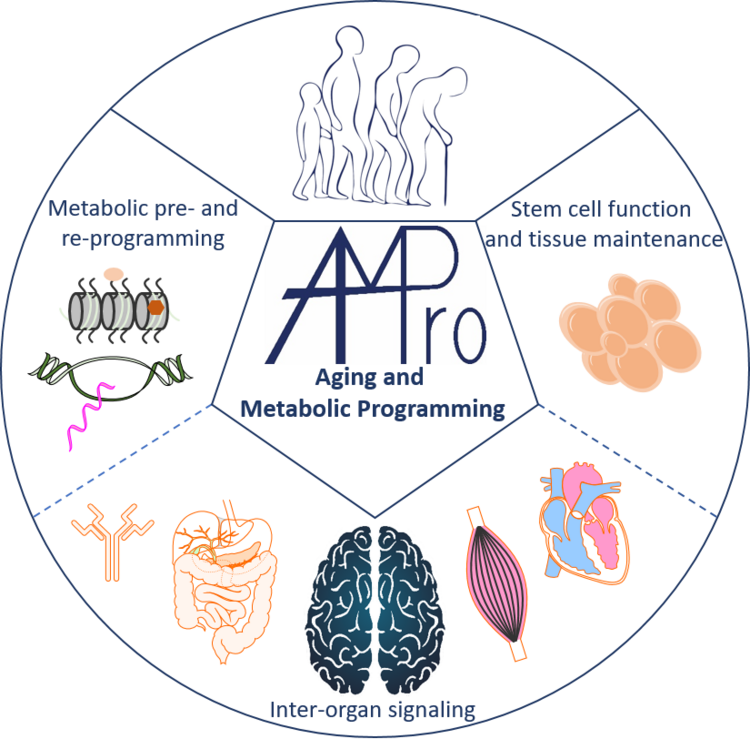AMPro in brief
All centers of the Helmholtz Health Research Section are working together with the aim of exploring innovative prevention and treatment approaches to age-related diseases. More...
The latest AMPro publications
T. Conlon et al.
Inhibition of LTßR signalling activates WNT-induced regeneration in lung.
Nature. Nov 2020.
Pauline Morigny and Julia Zuber et al.
High levels of modified ceramides are a definingfeature of murine and human cancer cachexia.
Journal of Cachexia, Sarcopenia and Muscle. Oct 2020.
Sara Ahmed et al.
Fitness trade-offs incurred by ovary-to-gut steroid signaling in Drosophila.
Nature. Aug 2020.
Contact - Project Management
Dr. Sabine Rehberger-Schneider
Division of Signal Transduction in Cancer and Metabolism
German Cancer Research Center (DKFZ) - B140
Im Neuenheimer Feld 580
69120 Heidelberg
Germany
Phone: +49 6221 42-1628
mail
AMPro - Aging and Metabolic Programming
Most chronic diseases such as diabetes, cancer, cardiovascular, respiratory and neurodegenerative diseases as well as chronic infections increase in incidence with age. This indicates common age-related mechanisms acting jointly. Due to increasing life expectancy throughout the world, those age-related diseases are emerging as a growing challenge for patients, doctors, the healthcare system and society as a whole.
Among other things, the AMPro consortium is seeking out new preventive and therapeutic approaches that have a positive effect on metabolic processes. This should enable the innovative and consistent treatment of age-related diseases. The following key aspects of metabolic processes associated with aging will be investigated.
Metabolic pre- and reprogramming
Prenatal and postnatal mechanisms of metabolic programming at the genetic and epigenetic levels
Inter-organ signaling
Mechanisms of organ and tissue communication
Stem cell function and tissue maintenance
Tissue and cellular repair mechanisms
The long-term goal is to improve health in an aging society. AMPro creates ideal conditions for successfully tackling one of the most pressing issues in today's society and meeting the challenges of age-related diseases.






